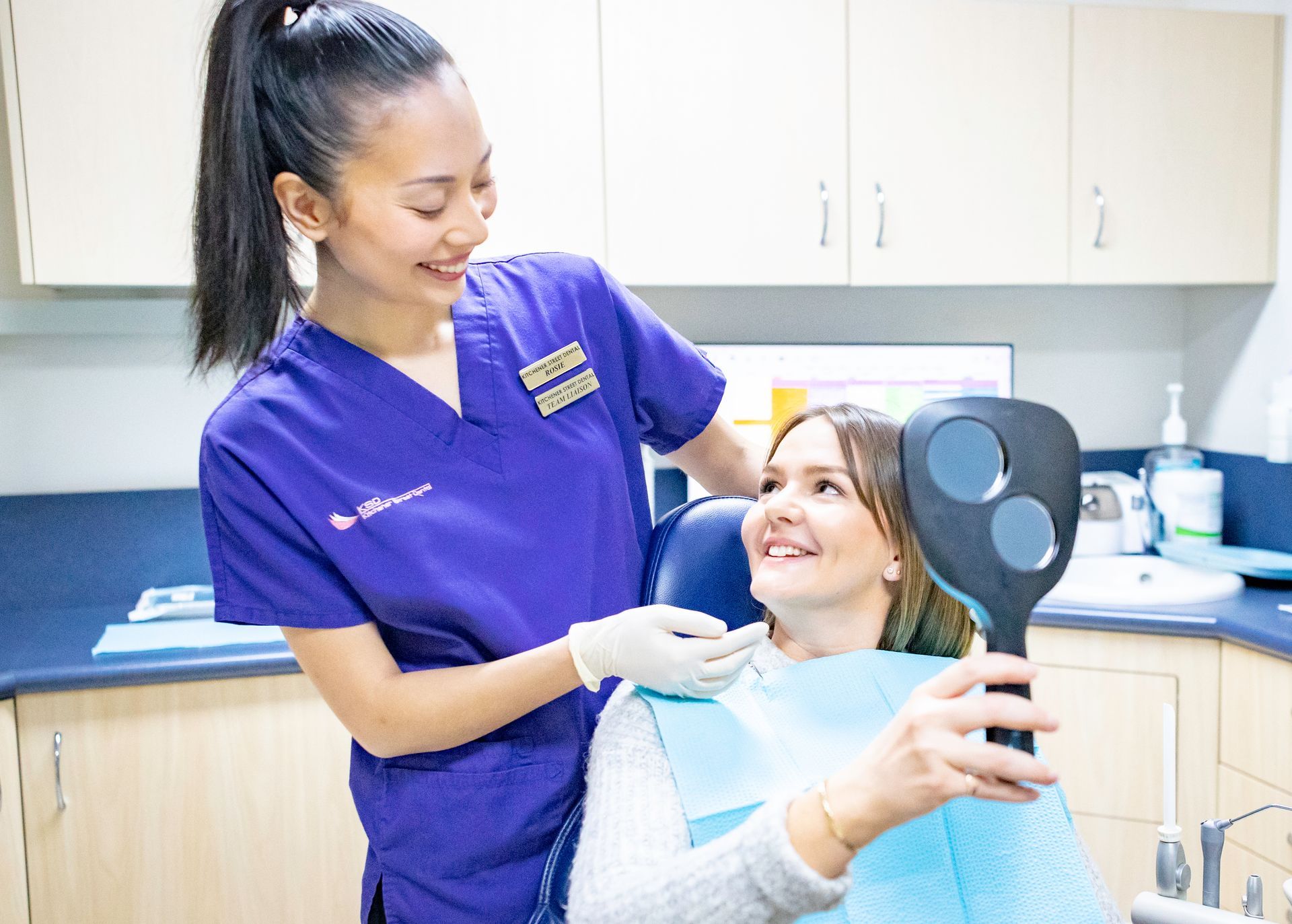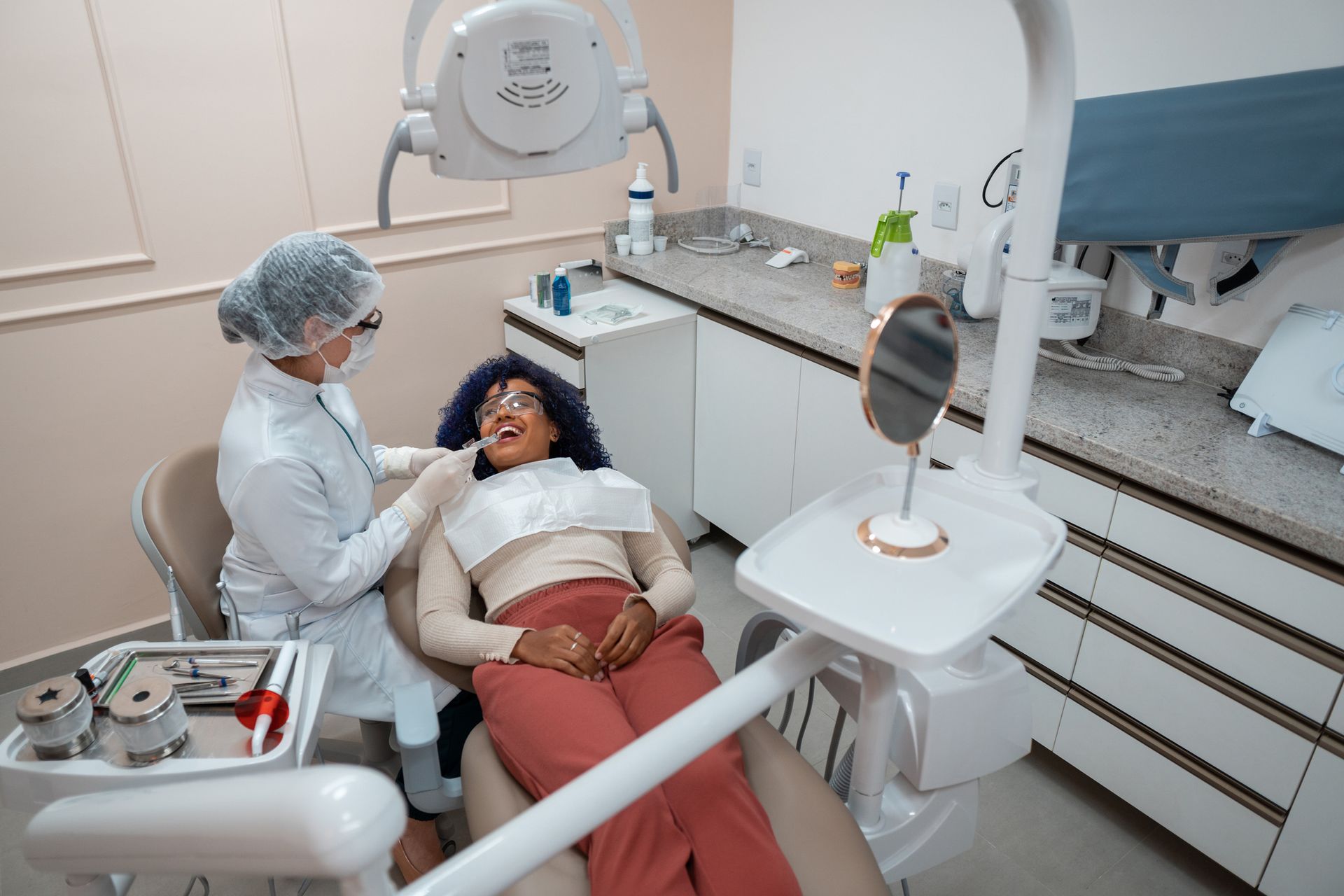Comprehensive General Dentistry for Lasting Oral Health
At Kitchener Street Dental, Toowoomba, QLD, we believe in setting the foundation for a lifetime of healthy smiles through regular, thorough dental examinations. Your comprehensive checkup is more than just a quick look at your teeth — it’s a complete health review. We assess your medical and dental history, perform a head and neck exam, check the TMJ, carry out an oral cancer screening, assess your bite (occlusion), gums, and teeth, and take essential radiographs every two years to monitor any hidden concerns. We take the time to address your individual needs and concerns, ensuring you feel heard and supported from the start.
What to Expect at Your Routine Maintenance Visit
We recommend returning every six months for a routine clean and check-up to keep your smile in top shape. These visits include a full mouth examination, scale and clean, fluoride application, and an update on your dental x-rays every two years. If your teeth are a little sensitive during cleaning, don’t worry — we apply a gentle numbing gel around your gums to keep you comfortable. Using an EMS scaler, we remove plaque and calculus, then polish your teeth with a specialised paste to lift any surface stains before your fluoride treatment.
Your Maintenance Visit Includes:
Thorough full-mouth examination
Gently scale and clean with an EMS scaler
Fluoride application for added protection
Stain removal with polishing paste
Personalised oral hygiene tips and product recommendations
Understanding Your Dental Radiographs
Dental x-rays play a crucial role in detecting issues that aren’t visible to the naked eye. We use three key types of radiographs:
Panoramic x-rays – full-mouth views that identify hidden issues like unerupted teeth, infections, or cysts.
Bitewing x-rays – used to detect decay between teeth and under crowns or bridges.
Peri-apical x-rays – help us view the entire tooth down to its root and identify problems like abscesses or fractures.
Each of these is taken with your care and comfort in mind, helping us create a complete picture of your oral health.
Preventive Care With Fissure Sealants & Oral Hygiene Support
Protecting your teeth before problems arise is always our goal. Fissure sealants are a safe and effective resin coating placed in the deep grooves of your molars to prevent decay — particularly helpful for younger patients or those prone to cavities. We monitor these sealants at every checkup to ensure they remain intact and effective. During your visit, we’ll also offer personalised guidance on improving your brushing and flossing technique and recommend products that suit your needs.
Your Comfort & Care Are Our Top Priorities
Choosing Kitchener Street Dental means choosing a team that genuinely cares. From your first visit, we take the time to get to know you, explain your options clearly, and create a treatment plan that works for you. Whether you’re coming in for a checkup or managing gum disease, we’re here to support you every step of the way. With flexible payment options, sedation services, and a caring team, we’re committed to making your dental experience as stress-free as possible.
Book your general checkup with a caring team today. Call Kitchener Street Dental on 07 4638 5111.







